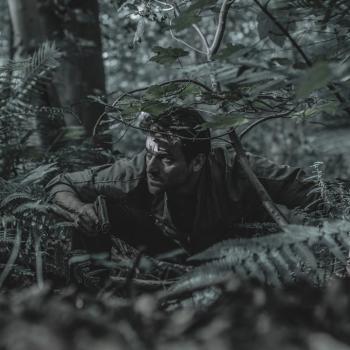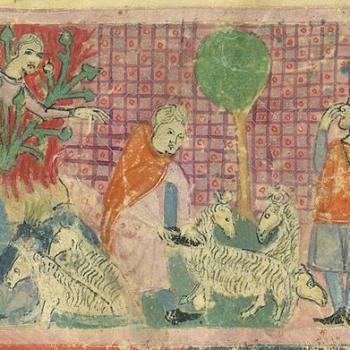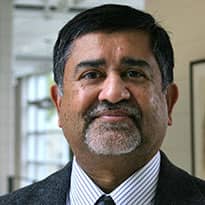Human beings have traversed the earth seeking food and refuge from the extremes of weather, escaping hostile neighbors, and looking for a place of bounty and beauty. A good friend, Nayan Chanda, has written a book about how people, over millennia, traveled the world and made contacts with new people, and established new empires and new relationships before anyone labeled it "globalization." One of the types of men who traveled the world was preachers. What Nayan does not tell us, which I hope he will in a new book, is that there were the opposite of preachers who traveled the world, seeking beauty, spiritual solace, a new "home" where their hearts would bloom and where they would find peace: the seekers!
As I have written in a couple of other essays, India has always welcomed such seekers for India is indeed a holy place, and men and women have trekked their way over millennia to find a guru, and experience the mystical and the magical. Sure, there are millions who make their way to Mecca these days, in organized and subsidized Haj "pilgrimages" or to Jerusalem or Rome during Christmas. As far as I know, no non-Muslim or non-Christian has written a book about finding a teacher or a mystic in those places, if indeed any such person went there looking to find one. Whereas, it is said that even Alexander the Great went to India looking to meet one of its great ascetics, about whom he had heard in his native Athens. A story is told of Alexander meeting such a monk and offering him great wealth; when he was told that all such wealth was a waste and a distraction, Alexander in fury sought to lop the head off the monk, but he was shamed by the challenge of the monk to "go ahead and kill me." It was the only time in his march across the world that Alexander surrendered!
Yes, indeed, many of us Indians have trekked our way across the world, and not just recently. Traders from India navigated the seas and established trading posts and relationships along the coast of East Africa as well as across vast stretches of Southeast Asia. These Indian traders and kings even influenced the religious practices of the people, without ever trying to manipulate or coerce them into a new faith, so from Thailand and Malaysia, and from Cambodia to Indonesia you will see how India's spiritual and cultural influences shaped the life of people in those regions. The great Angkor Wat temple complex, for example, reflects one of the South Indian styles of temple architecture.
Over a period of a few decades, recently, a few hundred thousands of Indians have made their way to the United States, after the passing of the Immigration Act of 1965. I believe none of us came here looking for a spiritual teacher or a mentor. I do not believe we have found any, except if that person happened to be a traveling guru from India! However, during that same decade, when Indians began traveling West to the United States, young Americans traveled East, to India, looking not for a stable job, a good university education, or to set up a business. They went seeking spiritual solace, curious, just as Alexander was, about the fabled land where men and women had discovered through rigorous practice the way to "liberation."
I have written about Patrick Levy and about Narvada Puri, and in that sequence of Western seekers from the 1960s, is Richard Slavin, now known as Radhanath Swami, who has written his own wonderful tale of early travails and eventual fulfillment in a beautiful book titled, The Journey Home: Autobiography of an American Swami. The book has attracted more attention than either Patrick Levy's book or Narvada Puri's, including a lame review by the Harvard professor of religion, Francis Clooney, but that attention and limp reviews notwithstanding, this is a story of a beautiful journey that should be read by those who still see India as a spiritual beacon, for it will confirm that the journey to and through that spiritual home is mysterious, powerful, sometimes frustrating, and finally liberating. It is not a book, however, for those who simply seek to travel to India to photograph exotic people and places, nor is it for those who think the spiritual journey will be without hazards or hardships.





